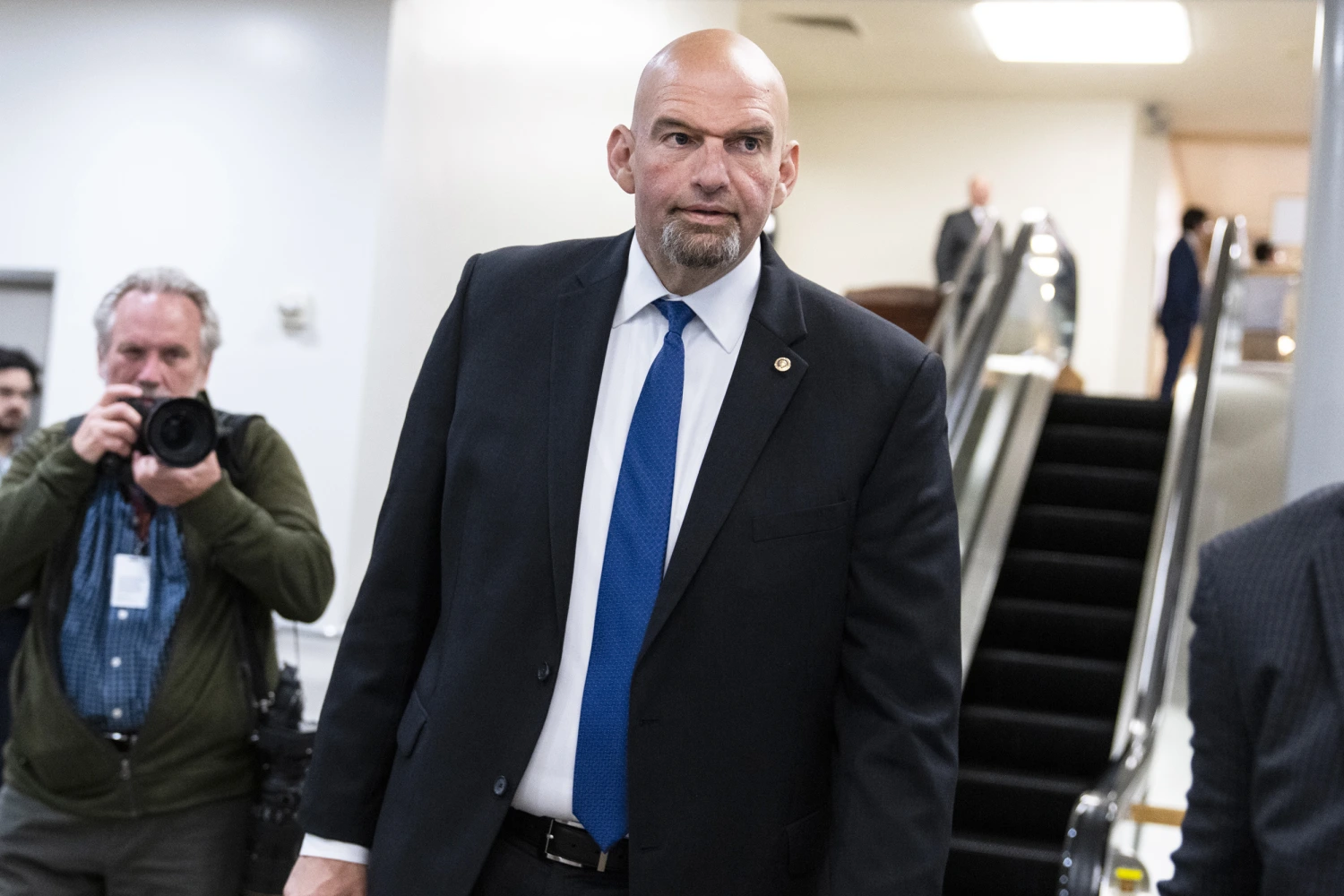Senator John Fetterman (D-PA) has expressed openness to discussing the possibility of the United States acquiring Greenland, a semi-autonomous territory of Denmark. The idea, first publicly floated by President Donald Trump during his initial term, has resurfaced as the President-elect prepares to take office, reigniting debates over the strategic and geopolitical implications of such a move.
Fetterman’s Perspective
In a recent interview, Senator Fetterman likened the idea of acquiring Greenland to historical U.S. territorial expansions such as the Louisiana Purchase and the acquisition of Alaska, both of which were initially met with skepticism but ultimately proved to be significant for the country’s development. Fetterman emphasized that discussions should be approached responsibly and diplomatically, avoiding any coercive measures.
“History shows us that these kinds of acquisitions, when done correctly, can have long-term benefits for national security, economic growth, and international influence,” Fetterman said. “If Greenland were open to the idea and there’s a mutual agreement, why not have the conversation?”
Renewed Interest Under Trump Administration
President-elect Trump has reiterated his interest in acquiring Greenland, describing it as a strategic necessity for U.S. national security and economic interests. Trump has suggested that Greenland’s geographic location and natural resources make it an invaluable asset, particularly in the context of Arctic geopolitics, where competition with nations like Russia and China is intensifying.
While no official proposal has been made during Trump’s transition period, advisors close to the President-elect have hinted that his administration is seriously considering revisiting the topic with Denmark and Greenland. In a statement, a Trump spokesperson said, “The United States has always prioritized its strategic interests, and Greenland fits into that framework. We’re exploring all possibilities.”
Mixed Reactions to the Proposal
The idea of purchasing Greenland has sparked mixed reactions domestically and internationally. Advocates argue that U.S. ownership of Greenland would enhance Arctic security, give the U.S. access to critical natural resources, and strengthen its geopolitical standing. They point to the presence of Thule Air Base, a U.S. military installation in Greenland, as evidence of the island’s strategic importance.
Critics, however, have dismissed the idea as impractical or unrealistic, citing Greenland’s strong cultural and political ties to Denmark and its semi-autonomous government. Greenland’s Prime Minister Múte Bourup Egede has previously stated that the island is “not for sale” and that its people have the right to determine their own future.
Bipartisan Interest
Fetterman’s willingness to engage in discussions about Greenland highlights a growing bipartisan interest in the island’s potential role in U.S. policy. Republican lawmakers, many of whom have supported Trump’s previous calls to acquire Greenland, have praised Fetterman’s open-minded approach.
“Greenland is more than just a piece of land; it’s a key to the Arctic,” said Senator Tom Cotton (R-AR), a vocal proponent of Arctic expansion. “I appreciate Senator Fetterman’s willingness to look at this issue from a strategic perspective.”
Historical Context
The United States has a history of territorial acquisitions that were initially controversial but later deemed vital. The Louisiana Purchase in 1803 and the purchase of Alaska from Russia in 1867 are prime examples. Both were criticized as wasteful or unnecessary at the time but later became cornerstones of U.S. expansion and development.
Proponents of the Greenland acquisition argue that it could be a similar watershed moment, positioning the U.S. as a dominant power in the Arctic and providing access to untapped natural resources, including rare earth minerals.
Geopolitical Ramifications
Greenland’s strategic location in the Arctic has made it a focal point in the competition among global powers. The Arctic’s melting ice has opened up new shipping routes and access to valuable resources, increasing its significance in global geopolitics. Russia and China have both invested heavily in the region, prompting concerns about U.S. influence and security.
“Greenland is at the heart of the Arctic, and whoever controls Greenland controls a significant part of the Arctic’s future,” said Dr. Sarah Jensen, a geopolitics expert at Georgetown University. “This is why the idea, while controversial, remains relevant.”
Challenges Ahead
Despite the interest, acquiring Greenland would face significant obstacles. Denmark has repeatedly stated that Greenland is not for sale, and Greenland’s government has emphasized its autonomy and the rights of its people. Any potential deal would require careful negotiation with both Denmark and Greenland and would need to respect the sovereignty and cultural identity of the Greenlandic people.
Furthermore, the proposal would likely face domestic political hurdles in the U.S., with critics questioning the financial and diplomatic costs of such an acquisition.
What’s Next?
As discussions about Greenland gain traction, it remains to be seen whether the Trump administration will formally pursue the idea. For now, Fetterman’s openness to the conversation adds a new layer of complexity to the debate, signaling that interest in Greenland transcends partisan politics.
Whether the U.S. can navigate the diplomatic and logistical challenges remains uncertain, but the renewed focus on Greenland underscores its growing importance in the global arena. As Arctic geopolitics evolve, the island may yet play a pivotal role in shaping the future of U.S. strategic interests.

